Read about and register for upcoming Critical Tech Talks below.
Critical Tech Talk 12
Vibe Coding with AI for Cancer Detection – Building Mini Medical Machines in the Shadow of “Big Tech”
Thursday, July 24, 2025 4:30 pm – 6:00 pm EDT in HH 1102
Join the Critical Tech Talk series to hear about how “vibe coding”, a flexible, intuition-driven approach to prototyping can empower people from non-computing backgrounds to shape the medical tools they actually need.
About the talk: As AI becomes increasingly embedded in healthcare and creative workflows, the boundary between expert and end-user is blurring. This talk explores how “vibe coding”, a flexible, intuition-driven approach to prototyping can empower people from non-computing backgrounds to shape the medical tools they actually need. Drawing from experience building fast, lightweight AI utilities for cancer detection and clinical documentation, the speaker examines how small-scale code experiments can unlock agency and challenge institutional inertia. In this session, the speaker hopes to generate discussion on how personal toolmaking can offer an alternative to extractive models of technological development, fostering more grounded and human-centered applications of technology in medicine and beyond.
About the speaker: Dr. Josh Del Papa is a resident physician in Diagnostic and Molecular Pathology at the University of Western Ontario. He completed medical school at Queen’s University and holds a PhD in biochemistry with a specialization in human and molecular genetics from the University of Ottawa. His research bridges diagnostic dermatopathology, physician-centered interface design, and artificial intelligence, with a focus on transparent, clinician-empowering tools. He is currently developing a fully offline AI platform that classifies skin cancers in real-time. The system is designed to augment intraoperative consultations through a human-in-the-loop approach, without relying on the cloud or opaque black-box systems.
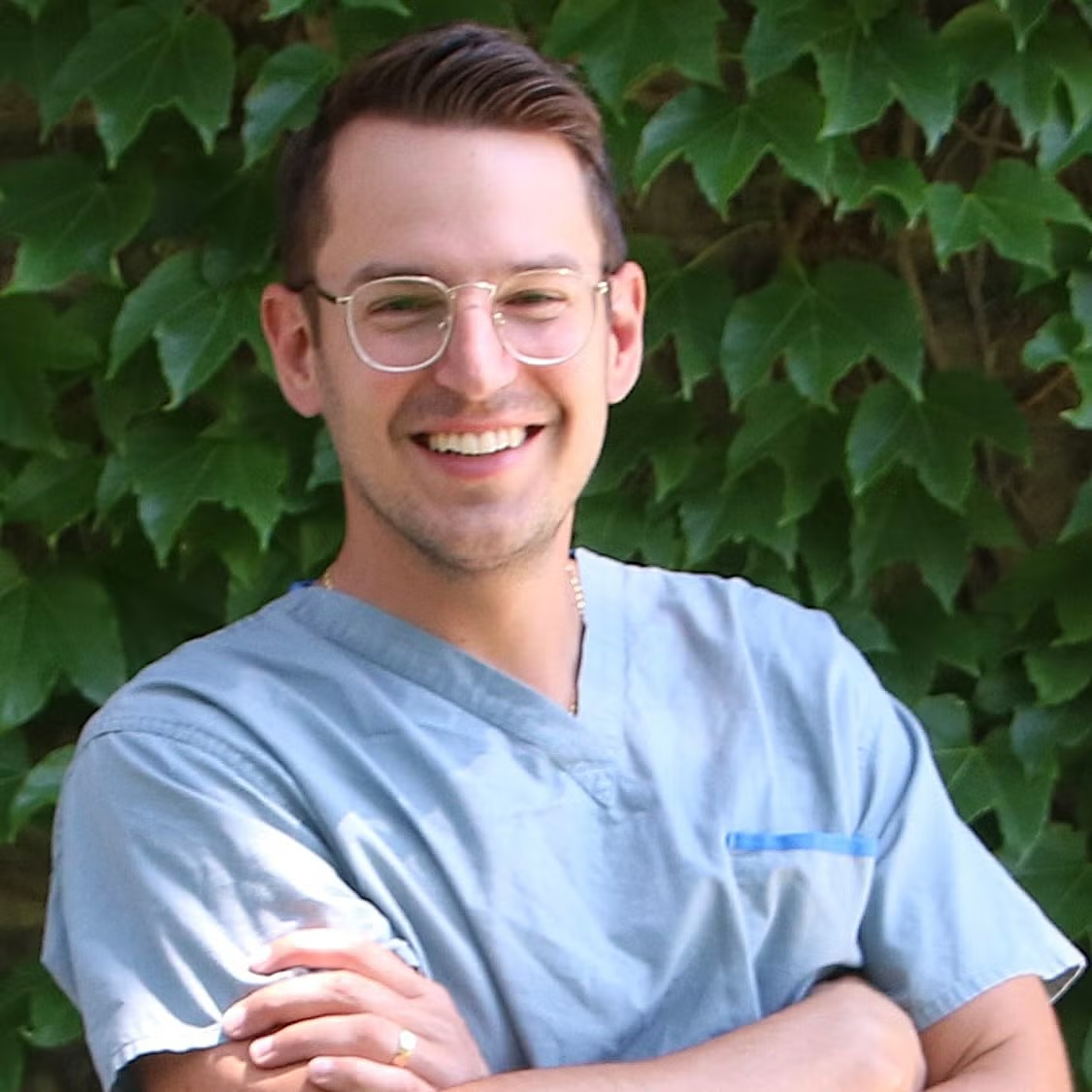
Respondents
Dr. Helen Chen is Director of the Professional Practice Centre in Health Systems and serves as Program Lead of the Master of Health Informatics and Analytics program. Her expertise lies in health data analytics and the interoperability of health information systems. Dr. Chen’s research explores the application of machine learning and generative AI to enhance the accessibility and usability of real-world health data, supporting evidence-based decision-making in healthcare and public health.

Dr. Jim Wallace is Professor in the School of Public Health Sciences with a cross-appointment in the Cheriton School of Computer Science. His research explores the intersection of human-computer interaction and health. He has published widely on topics including human-centered design, games for health behaviour change, and AI support for qualitaitve research. His work has received awards at the CHI and CSCW conferences, and is funded by NSERC, NRC, and CFI-JELF.

Dr. Plinio Morita is Director of the Ubiquitous Health Technology Lab (UbiLab). His research interests are in the areas of population-level surveillance using IoT data, mHealth and wearable technology design, ubiquitous sensors for smart homes, usage data and health data analytics, precision medicine, and technology for aging. He focuses on personalized medicine technologies that can prevent unnecessary visits to hospitals and drive our healthcare system toward community care and telehealth.

Moderator
Dr. Marcel O’Gorman, University Research Chair, professor of English, and founding director of the Critical Media Lab (CML), University of Waterloo. Professor O’Gorman leads collaborative design projects and teaches courses and workshops in critical media studies and responsible innovation. He has published widely about the impacts of technology on society, and he has an international portfolio of exhibitions and performances.

SOLAR POWER STUDIO
The Critical Media Lab (CML) presents a trio of community-building events to mark the lightest days of the year. Help inaugurate the CML’s new location in ECH 1205, and learn about its pivot toward “ecomedia”: critical issues in technology and the environment. These events are open to students, faculty, and staff in all disciplines.
- Talk from Dr. Anne Pasek: An Energy History and Future of Big/Little Tech
- Hands-on Workshop: Solar Futures
- Talk-Tour-Workshop: Visualizing the Solar EV3 Panels
Critical Tech Talk Popup: “An Energy History and Future of Big/Little Tech”
Anne Pasek
Date: Tuesday, June 24 at 4:30 PM
Location: ECH1205 Critical Media Lab
This talk will survey two trajectories for computing in North America. The first, grounded in an energy history of major players in the tech sector, explores how energy efficiency has been both a driving economic force of our digital present and an insufficient means to mitigate its rapidly growing environmental impacts. The second, drawn from artists and hackers experimenting in degrowth computing, ‘small tech,’ and solar-powered networks, explores how energy constraints are producing an alternative and dissonant path. Thinking these trajectories together, the talk will outline a politics and practice of digital energetics.
Anne Pasek is an Assistant Professor at Trent University, dividing her time between the Department of Cultural Studies and the Trent School of the Environment. Her work explores the environmental impacts of digital technologies, the cultural politics of climate change, and critical making/artistic practices that might provide new avenues through these tricky problems. Her books include Digital Energetics (Meson Press 2023) and Low-Carbon Research Methods (Goldsmiths, forthcoming 2025).
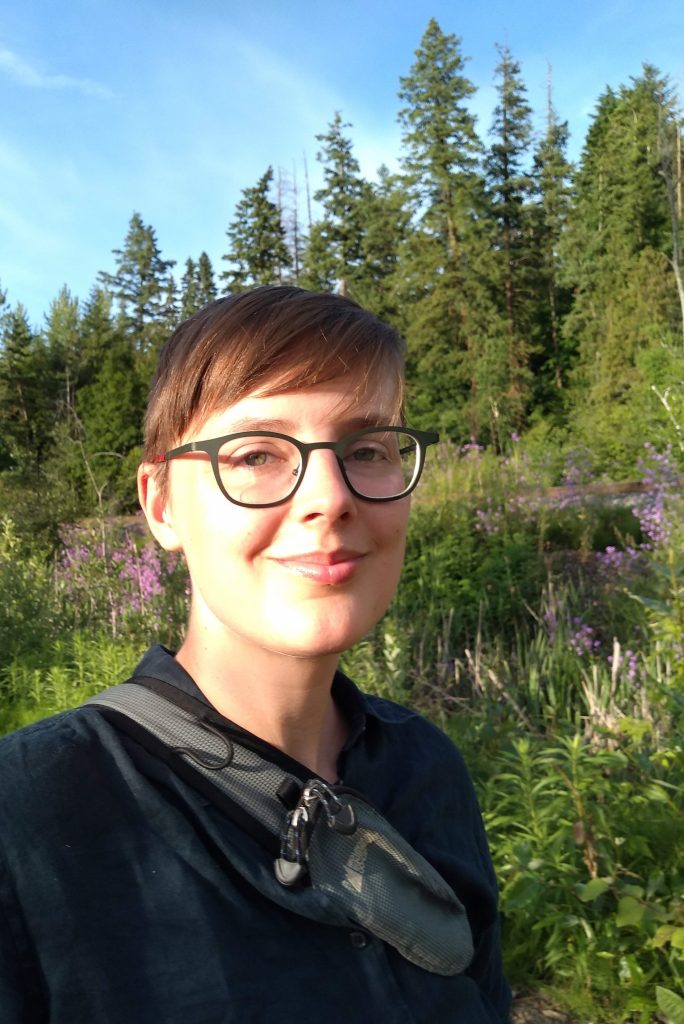
Hands-on Workshop: Solar Futures
Date: Wednesday, June 25 at 4:00-6:00 PM
Location: ECH1205 Critical Media Lab
In this workshop co-directed by Anne Pasek, Marcel O’Gorman, and Adan Jarrett-Poole, participants will work in groups to build a small solar power station and write/design a future worldbuilding scenario for its deployment. No technical or artistic expertise is required, but participants must be willing to think critically and creatively as they work in a supportive solar futures community.
Talk-Tour-Workshop: Visualizing the EV3 Solar Panels
Date: Thursday, June 26 at 9:00-11:00 AM
Location: EV3 3412
This event begins with a brief talk by Professor Ian Rowlands about the deployment of solar panels on the top of Waterloo’s EV3 building, placing this within the context of solar energy policy and use in Ontario more broadly. A guided tour around EV3’s atrium will follow and – weather-permitting – its exterior and roof for an up-close look at the building’s solar panels.
Next, participants will work with Professors Anne Pasek (Trent University) and Marcel O’Gorman to design a solar energy visualization project using data from the EV3 solar panels. No technical or artistic expertise is required, but an interest in alternative energy, sustainability and critical-creative design is a must.
Speculative Imaginaries and Technological Design
Date: Wednesday, June 25 at 4:00-6:00 PM
Location: ECH1205 Critical Media Lab
Sherryl Vint
Friday January 24, 2025 | 3:00pm EST | Virtual over Zoom
Speculative fiction (sf) is an influential mode that shapes how we imagine what technologies and futures we find desirable, feasible, and valuable. But whose values inform imagined techno-utopian futures? How can we draw on the power of sf if we understand the genre not as a storehouse of technologies we might one day create, but instead as a critical engagement with the way that technology inevitably shapes the social world in ways that extend far beyond its intended use? Using the example of the intersection of sf with disability studies, this talk will outline how sf can function as a mode of enquiry, a rhetorical tool that can help us guide technological development toward greater inclusion and equity by opening new perspectives on the problems technology seeks to solve. Focusing on the specific example of sf written from the perspective of people with disability, it will show how such fictions can help us understand how to cultivate a more capacious social imagination as a crucial element of equitable and inclusive technological design.
Sherryl Vint is Professor of Media and Cultural Studies and of English at the University of California, Riverside, where she founded the Speculative Fictions and Cultures of Science program. She has published widely on science fiction, including, most recently, Biopolitical Futures in Twenty-First Century Speculative Fiction (2021), Science Fiction: The Essential Knowledge (2021), and Programming the Future: Speculative Television and the End of Democracy (2022, co-authored with Jonathan Alexander). She was a founding editor of Science Fiction Film and Television and is the Managing Editor of Science Fiction Studies and editor of book series Science in Popular Culture.
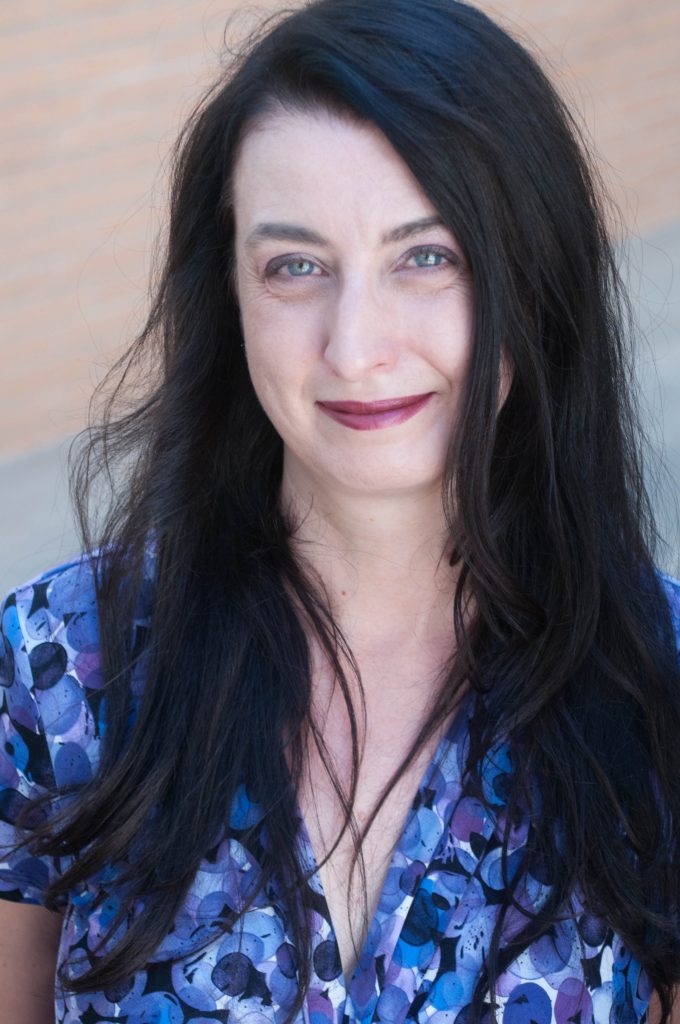
Respondents
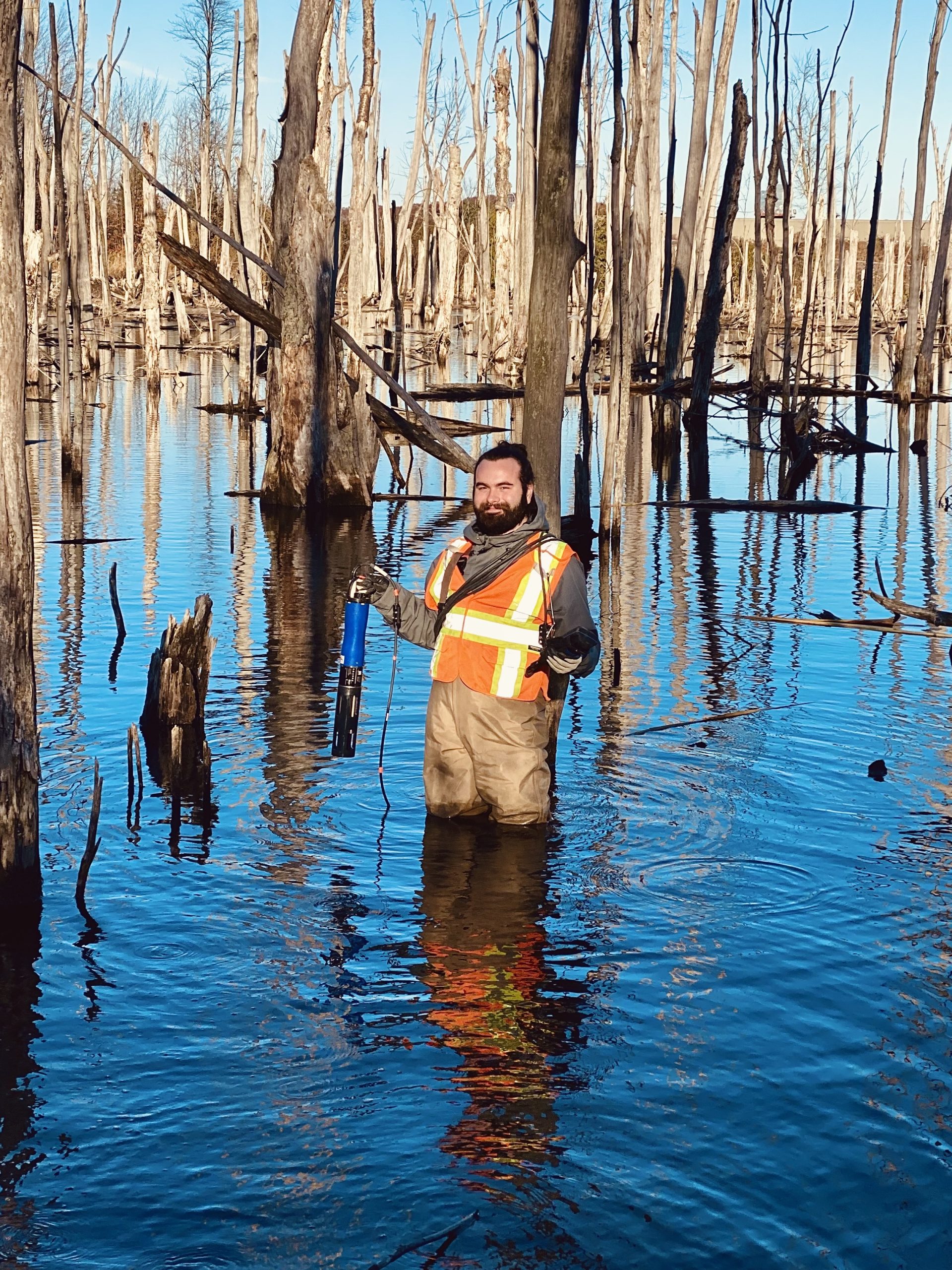
Liahm Ruest, MA, BSc (UWaterloo) is an MSc candidate in Biology at the University of Waterloo. They have previously completed their MA in Rhetoric and Communications Design, focusing on science communications. They are currently working on urban ecology projects within the interdisciplinary RISE (Residential Development Impact Scorecard for the Environment) project. Their research interests are biodiversity in cities, the rhetoric of science, and photography in science communication. Their current research uses metagenomics and environmental DNA to classify biota in urban stormwater systems.
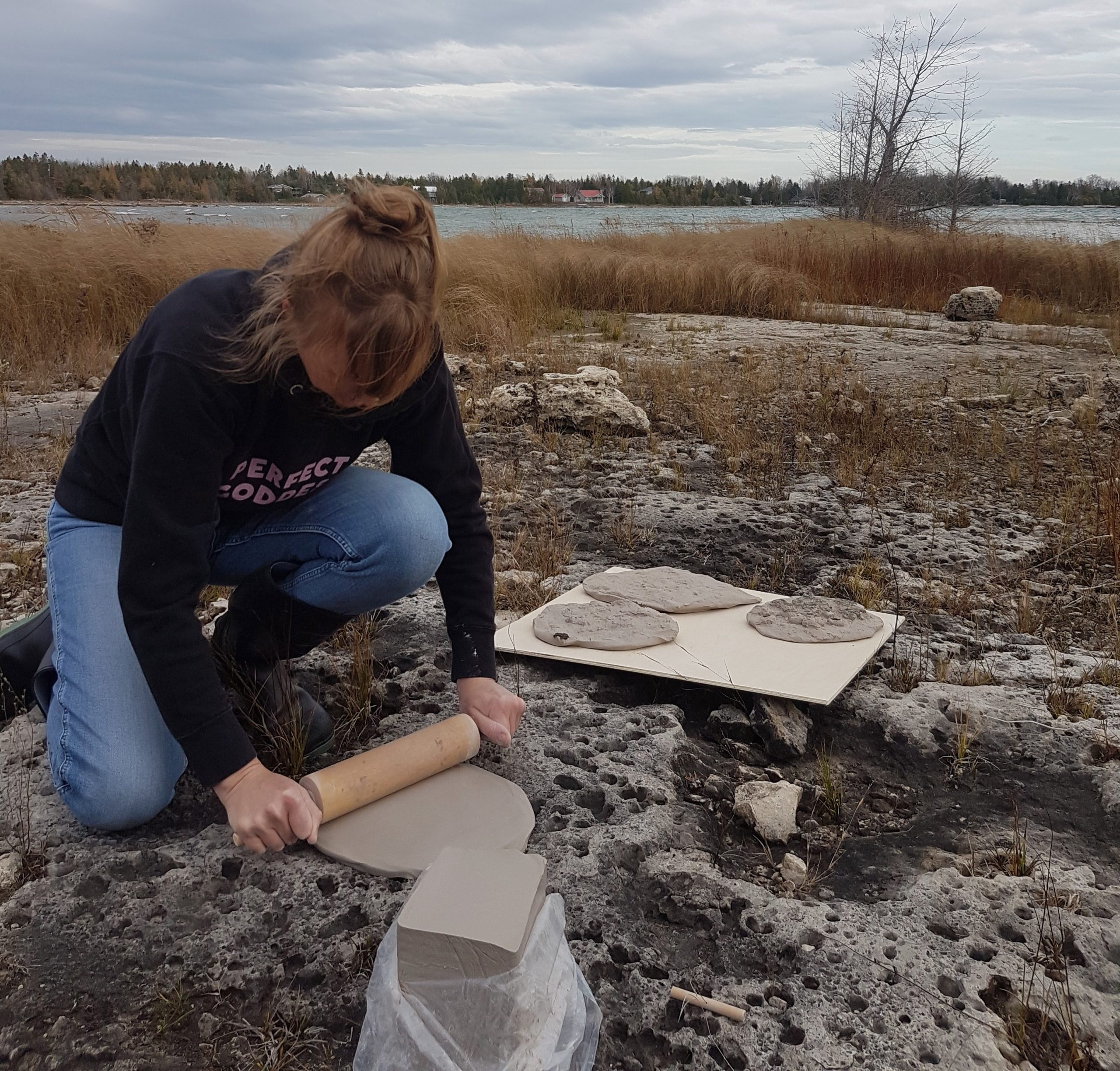
Dr. Lauren Judge is an interdisciplinary geographer currently working as a Research Associate at Wilfrid Laurier University. Originally from Kitchener, Ontario, she completed a Bachelor of Arts degree at York University (2003), a Master of Arts at the University of Waterloo (2005), and her PhD at Wilfrid Laurier University (2024). Since 2009, Lauren has practiced professionally as a visual artist who experiments with painting on canvas and paper and multimedia installations that include handmade textiles, ceramics and mosaics. Lauren’s research and arts practice explores subjects like ecofeminism, more-than-human world-making, speculative futures and the pluriverse.
Moderator
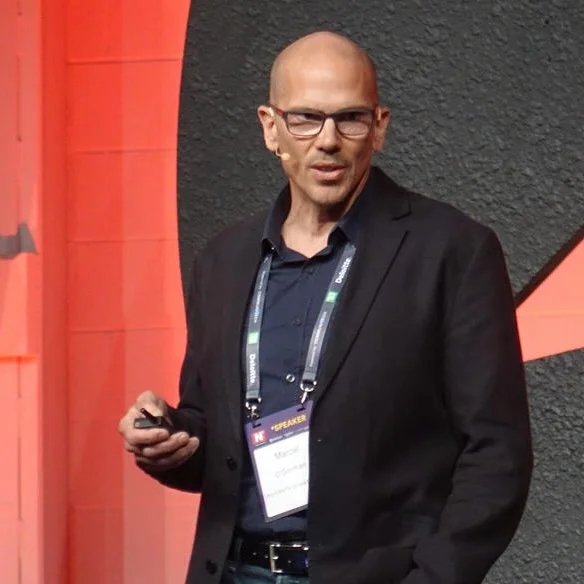
Marcel O’Gorman is a University Research Chair, Professor of English, and Founding Director of the Critical Media Lab (CML), where he teaches courses, leads collaborative projects, and directs workshops in digital design and the philosophy of technology. The CML is located inside the Communitech Hub in Kitchener, where its role is to disseminate a philosophy of “tech for good.”
Ecomedia and the Cost of Technological Progress
Cajetan Iheka
Monday October 7, 2024 | 4:30pm EST
The affordance of technology is the improvement of human lives and societies. Advancements in technology have contributed to improved life and efficiency for human societies. But what is the cost of technological innovation and who bears the brunt? Communities of color in the West and global south societies have often suffered the consequences of technological progress. This talk turns to ecological media produced about extraction in Africa to highlight the exacting cost of innovative progress across the continent and the rerouting of low-tech infrastructure to reconstitute the fragmented social.
Cajetan Iheka is Professor of English at Yale University, where he specializes in African literature, ecocriticism, ecomedia, and postcolonial literature. He serves as director of the Whitney Humanities Center, chair of the Council on African Studies, and head of the Africa Initiative at Yale. Professor Iheka is the author or editor of four books, including Naturalizing Africa: Ecological Violence, Agency, and Postcolonial Resistance in African Literature (Cambridge University Press, 2018). Naturalizing Africa won the 2019 Ecocriticism Book Award of the Association for the Study of Literature and Environment, and the 2020 First Book Prize of the African Literature Association. His African Ecomedia: Network Forms, Planetary Politics (Duke University Press, 2021) received six book prizes and honors, including the 2022 African Studies Association Best Book Prize, the Ecocriticism Book Award of the Association for the Study of Literature and Environment, and the Harold and Margaret Sprout Award of the International Studies Association.

Respondents

Paul Ugor is a Professor in the Department of English Language and Literature. His research and teaching interests are in the areas of Modern African Literatures and Cultures, Anglophone Postcolonial World Literatures, Cultural Studies, Global Black Studies, and New Media Cultures in the Global South. He is the author of Nollywood: Popular Culture and Narratives of Youth Struggles in Nigeria (2016) and co-editor of several collections including, Youth and Popular Culture in Africa: Media, Music, and Politics (2021) and African Youth Cultures in the Age of Globalization: Challenges, Agency, and Resistance (2017).
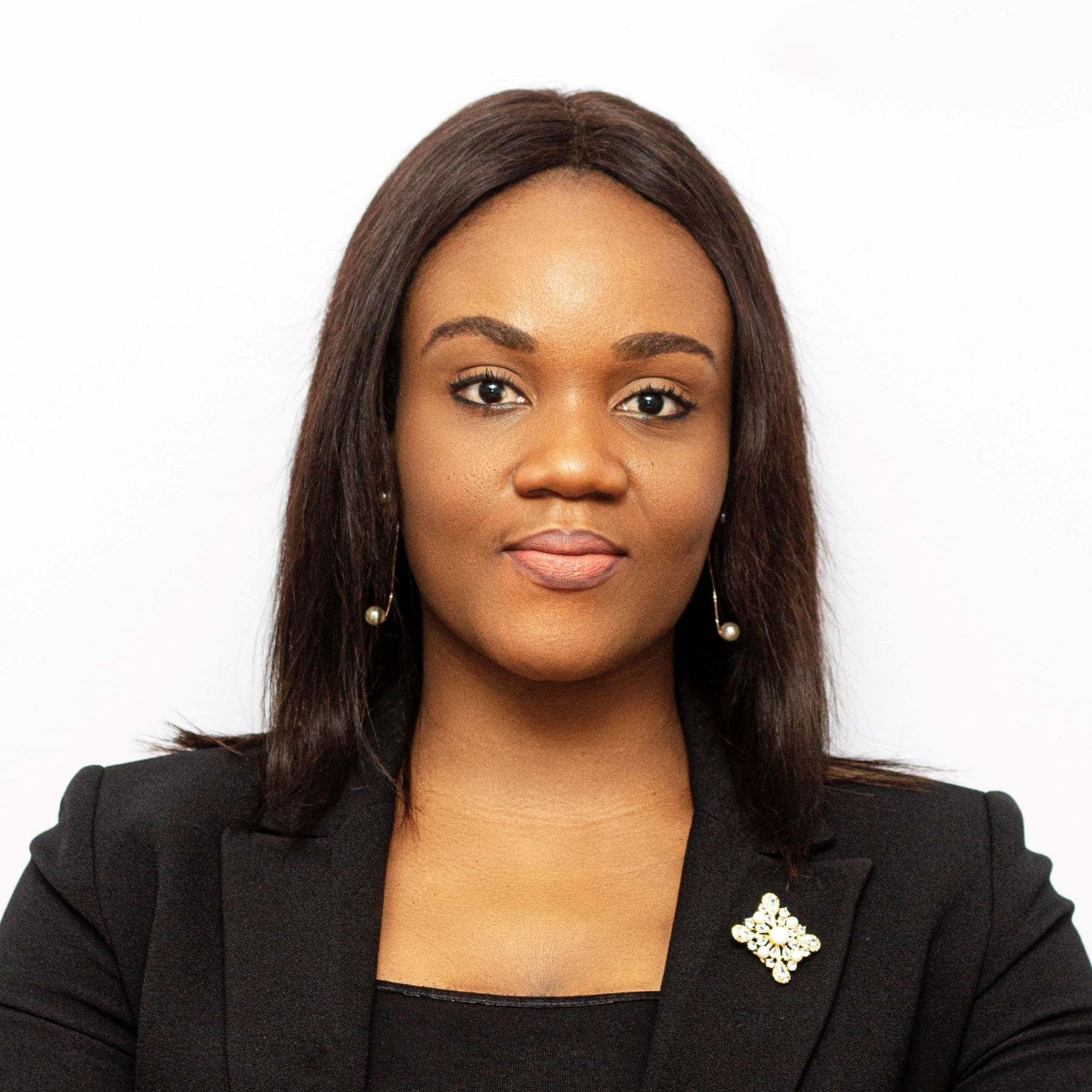
Adwoa Appiah, BSc (KNUST), MSc (Oxon), EMBA (Univ of Ghana) is a PhD candidate in Sustainability Management at the University of Waterloo’s School of Environment, Enterprise, and Development (SEED). She has previously worked with leading financial institutions in Africa including the African Development Bank and Ecobank where she gained experience in environmental management and sustainability as well corporate and transaction banking. Her research interests are in sustainability management with emphasis on sustainable banking, sustainable finance and climate governance. Her current research focuses on commercial banks in Africa’s contribution to sustainability and the UN Sustainable Development Goals.
Moderator

Marcel O’Gorman is a University Research Chair, Professor of English, and Founding Director of the Critical Media Lab (CML), where he teaches courses, leads collaborative projects, and directs workshops in digital design and the philosophy of technology. The CML is located inside the Communitech Hub in Kitchener, where its role is to disseminate a philosophy of “tech for good.”
Perspectives on Accelerating AI Adoption
Distinguished Panel
Tuesday June 25, 2024 | 4:00pm EST | In-person at Communitech Hub
Join us to explore the impact of the Voluntary Code of Conduct on the Responsible Development and Management of Advanced Generative AI Systems. The code, introduced by the Ministry of Innovation, Science and Industry, aims to foster public trust in AI technologies, intending to accelerate adoption. This engaging panel discussion featuring education leaders, computer science researchers and industry experts will explore the broader implications of accelerating AI adoption beyond economic impacts. Speakers will share insights, hopes and concerns about the potential societal changes, ethical considerations and regulatory challenges that come with AI.
Humility as a Value in Engineering and Design
Kari Zacharias
Friday March 22, 2024 | 4:00pm EST | Virtual and in-person
Couldn’t join us live? Catch up on the recording of this event: https://www.youtube.com/watch?v=Q7TBe5PceBs
Responsible, sustainable, and equitable technological design requires a culture of engineering whose values reflect these intended design outcomes. In this talk, I use the Ritual of the Calling of an Engineer – the Rudyard Kipling text that forms the basis of the iron ring ceremony – as a space to explore changing understandings of humility as an engineering value. While humility has long been positively associated with engineering practice, the humble engineer portrayed in Kipling’s poetry is a different figure than the engineer humbled by technology who is often presented in contemporary discussions of the iron ring and the Ritual. I argue that our understanding of engineering humility has implications for the ways that we think about and enact responsibility in engineering and technological design. Connecting recent discourse around the Ritual to the idea of humility, I suggest that engineers can work towards responsibility, sustainability, and equity in design by practicing humility as respect of other ways of knowing, doing, being, and making.
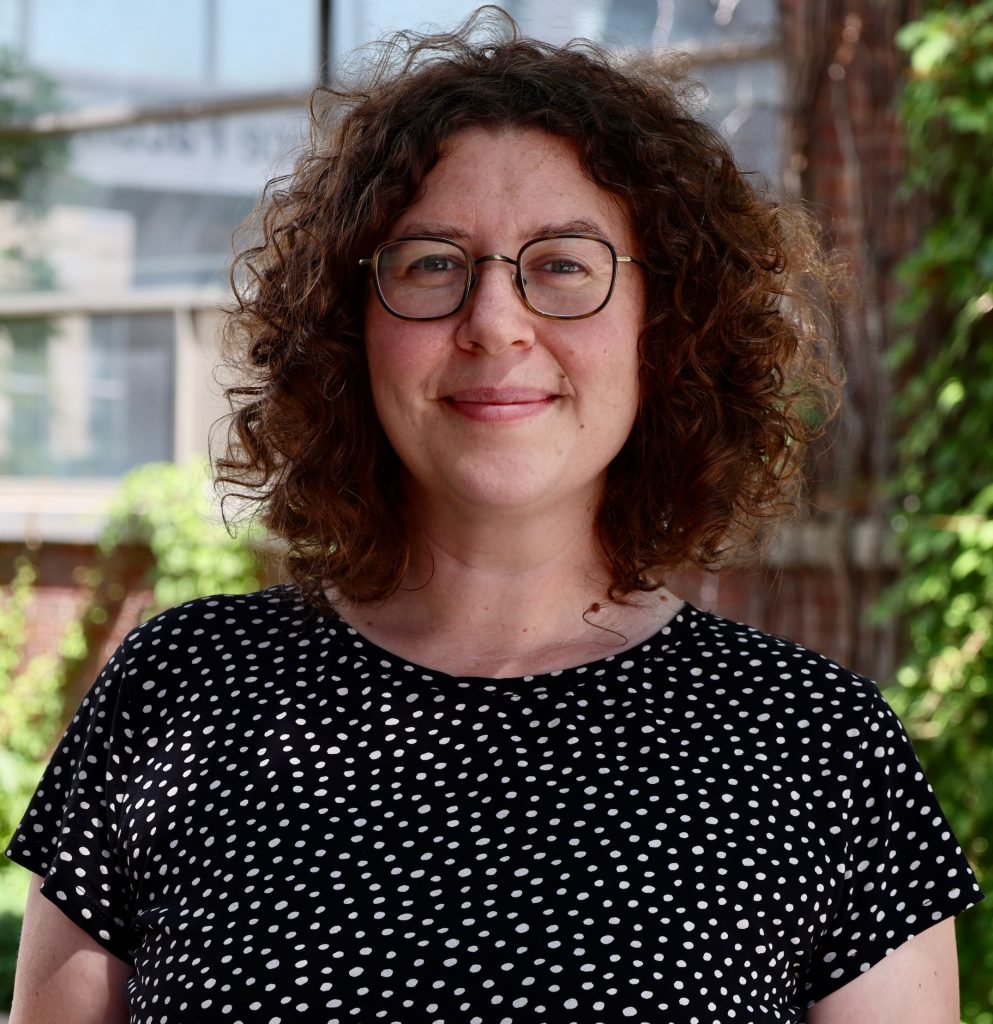
Kari Zacharias is an Assistant Professor in the Centre for Engineering Professional Practice and Engineering Education at the University of Manitoba. Her work focuses on the intersections between engineering knowledges and other disciplines and knowledge cultures. She has a background in engineering and in science and technology studies, and she is a founding member and co-facilitator of the Retool the Ring group.
Dr. Zacharias will be joined by two respondents, Dr. Jennifer Howcroft and Naomi Paul.

Jennifer Howcroft is a Lecturer in the Department of Systems Design Engineering at the University of Waterloo. Her research encompasses technical and pedagogical research areas. Her pedagogical research focuses on engineering education, in particular engineering design, holistic engineering education, empathy, and values. Her technical research is predominantly focused on sensor-based human movement analysis encompassing signal analysis, big data analytics, and artificial intelligence techniques.
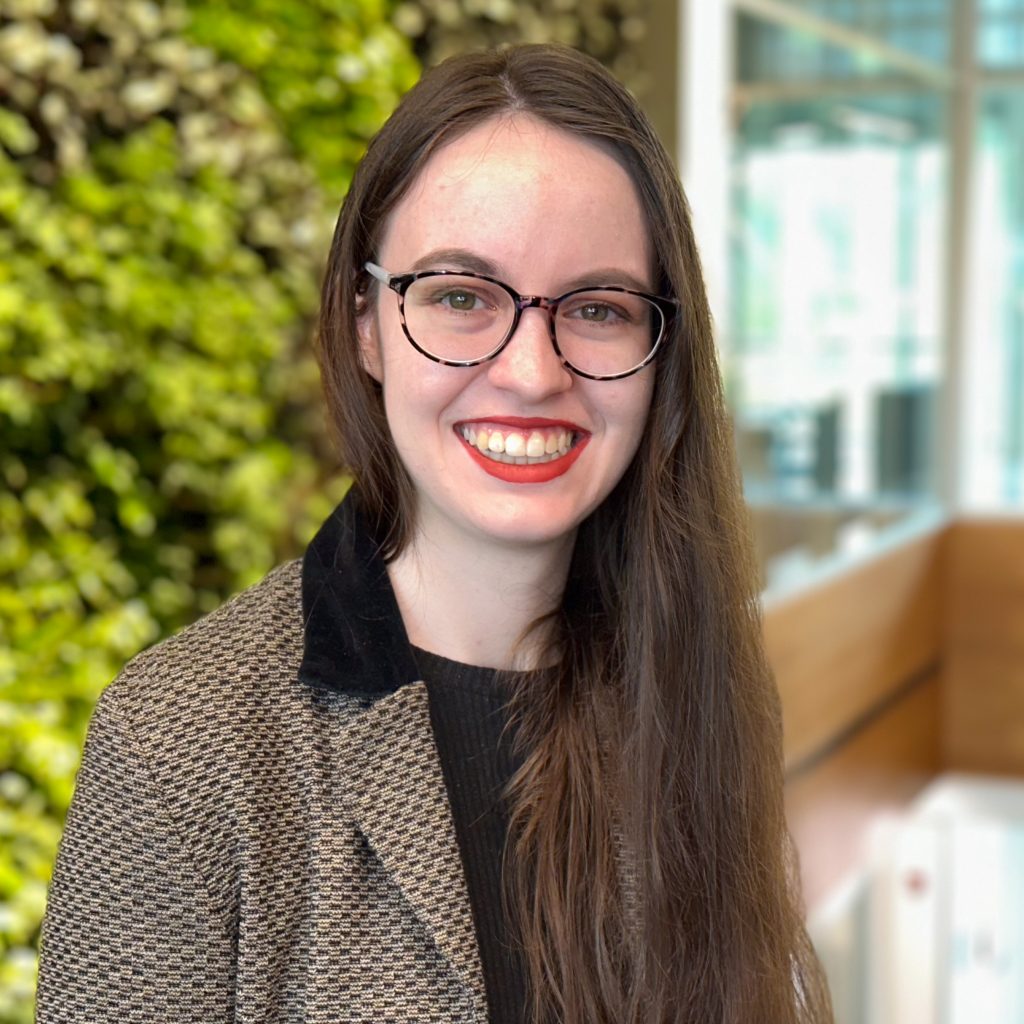
Naomi Paul (She/Her) is a Métis woman who grew up here in Waterloo region. This is outside of the Georgian Bay Métis Community, which is her family’s hometown. She is currently pursuing her PhD in the Department of Systems Design Engineering at the University of Waterloo, where she completed both her undergraduate and master’s degrees in Systems Design Engineering as well. Naomi’s research focuses on bridging Indigenous and Western knowledge within STEM, recognizing that Indigenous Perspectives have long been excluded from education, but will play a crucial role in our progress towards reconciliation.
How to Build Anything Ethically
Suzanne Kite
Tuesday November 21, 2023 | 11:30am EST | Virtual
Couldn’t join us live? Catch up on the recording of this event: https://www.youtube.com/watch?v=rK-TbocBwHE&t=71s
This discussion of ethical decision making when building technologies in a ‘Good Way’ includes two examples. First, I illustrate how the protocol for building a Lakota sweat lodge can act as a framework for building a physical computing device. Next, I provide an example of how multiple streams of protocol are necessary to build an AI system as a confluence of ethics. Some ideas proposed here are not currently possible, some are possible if investment is made in the necessary research, and some are possible but only through a radical change in the way technology companies are run and the pyramid of compensation for the exploitation of resources is reversed.

Suzanne Kite is an award-winning Oglála Lakȟóta artist, composer, and academic. Her scholarship and practice explore contemporary Lakȟóta ontology (the study of beinghood in Lakȟóta), artificial intelligence, and contemporary art and performance. She creates interfaces and arranges software systems that engage the whole body, in order to imagine new ethical AI protocols that interrogate past, present, and future Lakȟóta philosophies.
On Black Media Philosophy and Beyond
Armond R. Towns
Wednesday September 20, 2023 | 5pm EDT | Virtual and in-person
Couldn’t join us live? Catch up on the recording of this event: https://m.youtube.com/watch?v=whWeYuLfc1g
Much of the contemporary research on race in communication media studies begins with media representations. However, for this talk, Armond R. Towns will focus on the relationship between the modern research university, race, and the development of communication and media studies in the early and mid-twentieth century, with a focus specifically on US and Canadian communication and media studies. Like the modern university, the discipline of communication and media studies, Towns argues, has a difficulty with understanding non-Western life. This talk is a beginning conversation on how to push toward new forms of understanding humanity beyond Western life. The topic of who counts as human is crucial in a context where big tech aims to control the future of so-called humanity and the AI race closes the gap between human and machine communications.
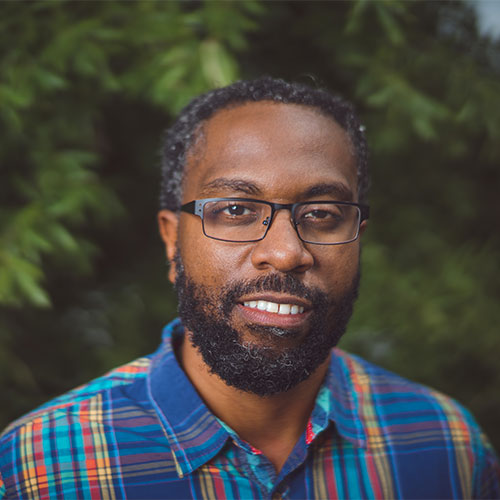
Armond R. Towns is an associate professor in Communication and Media Studies at Carleton University. He holds a Ph.D. from the University of North Carolina at Chapel Hill in Communication. His research brings together Black studies, cultural studies, and media philosophy. His book, On Black Media Philosophy, was published in 2022 with the University of California Press. He is also the co-founder and inaugural editor of the journal, Communication and Race. Currently, he is developing a project on the relationship between the history of communication studies and the history of Black studies, focusing specifically on the development of both fields in U.S. and Canada.
Produced by the Critical Media Lab at the University of Waterloo, Critical Tech Talks is a series of honest dialogues about technological innovation. From data harvesting to the conflict minerals in our smartphones, critical thinking is shifting the momentum towards positive change – towards Tech for Good®. Each of the university’s six faculties will co-host a techno-critical speaker and invite Waterloo students and local tech sector members to participate in an on-stage dialogue and lead a post-event discussion online. The series is sponsored by Communitech, the Office of Research at the University of Waterloo, and the faculties of Arts, Environment, Engineering, Health, Math, and Science.
Past events: Our first round of Critical Tech Talk spanned six events from Fall 2021 to Spring 2023. Please see the event recordings and speaker details from our first series on this page. Catch up on the second series of talks that began in Fall 2023 on the current page.
